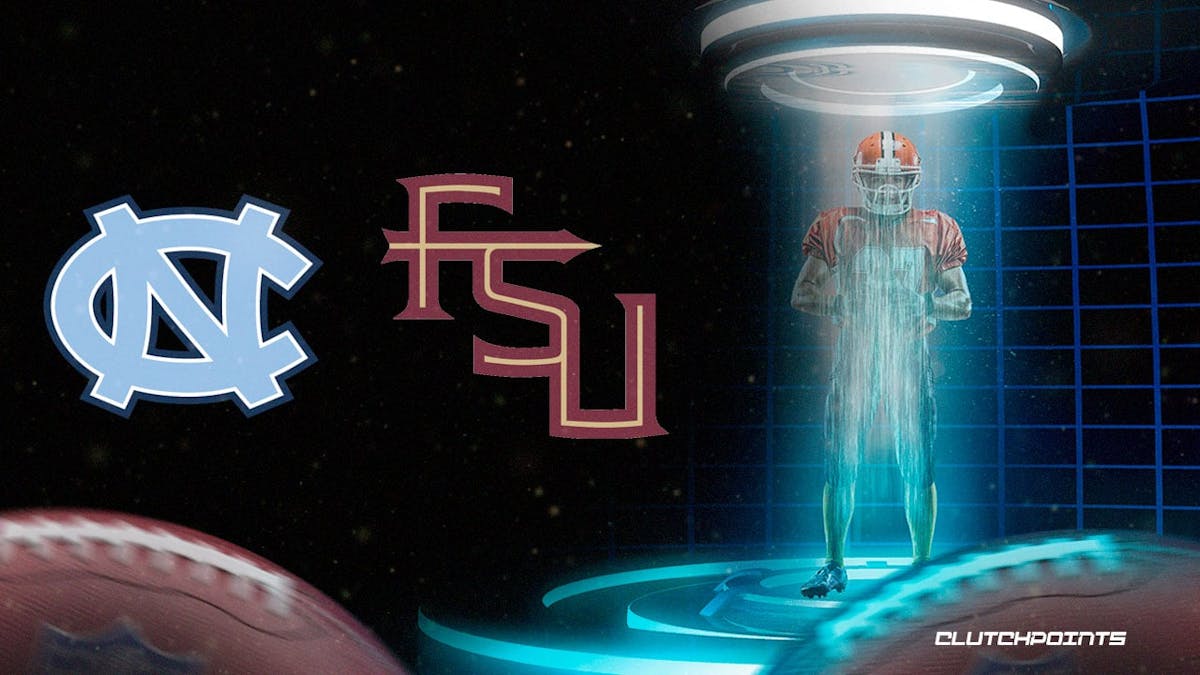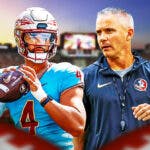In the ever-evolving landscape of collegiate athletics, the transfer portal has become a pivotal platform for college football players and others seeking new opportunities and fresh beginnings. However, as players have demonstrated, the flippant ease with which some athletes have been able to switch schools without facing consequences or delays has prompted a reconsideration of the transfer rule. Florida State football player Darrell Jackson Jr. North Carolina football player Devontez Walker are finding this out the hard way.
NCAA changes rule on second-time transfers
In a significant announcement on Wednesday, the NCAA introduced a recent change in its guidelines for second-time transfers. This adjustment signifies a departure from the previous hands-off approach and mandates that immediate eligibility waivers will now be granted exclusively for “medical or safety” grounds. The move aims to rectify a system that some believed had been abused by players altering their academic and athletic paths without punishment.
Here's the official NCAA ruling, per ESPN's Andrea Adelson:
“On January 11, the Division I Council—which includes a voting representative from each Division I conference—voted unanimously to significantly tighten the criteria for undergraduate students who transfer for a second time to be granted a waiver to play immediately.
“As a result of the DI Council vote, multiple-time transfers who cannot demonstrate and adequately document a personal need for medical or safety reasons to depart the previous school are not eligible to compete immediately following their second undergraduate transfer. National office staff, at the direction of NCAA members, have begun applying those criteria for multiple-time transfers for the 2023-24 academic year.”
NCAA uses Florida State, North Carolina college football players as example
The catalyst for this rule change stemmed from the denied eligibility waivers of two college football student-athletes, Darrell Jackson Jr. from Florida State and Devontez Walker from North Carolina. Their stories highlighted the need for what has been some much needed reevaluation of the transfer portal's operations. These players cited family health concerns as reasons for their transfers to other schools, which were normally circumstances that were regarded as legitimate grounds for immediate eligibility. However, that's now not that case, as Walker noted:
“The way the rules were set up at the time, we knew we'd have to file a waiver as a two-time transfer, and in previous years, those waivers were being granted,” Walker said.
While the reasonings behind Walker and Jackson's transfer seem legitimate, it underscores the rampant misuse of waivers that the NCAA sought to address with this new ruling. The transfer portal has been severely misused since its inception, allowing players to make flippant decisions due to unhappiness and less or no playing time on the field. A string of transfers by players like JT Daniels, for example, seemed to exploit the leniency of the former rule, which unfortunately in turn raised questions about the authenticity of moves from the North Carolina and Florida State athletes.
Daniels, who was a former national high school player of the year and five-star recruit, will be playing for his fourth college in five years when he begins his season at Rice this year. He has played at USC, Georgia and West Virginia, while going a combined 17-12 as a starter.
Unlike Walker and Jackson, Daniels hasn't exclaimed the reasonings behind his continuous transfers. The reasonings seem clearly obvious, however. Although Daniels has had success and garnered playing time in his previous stops, injuries have been an issue and caused him to miss adequate time on the field, therefore leaving others to take his place.
Problems with the rule
It's difficult to put the blame on Daniels, who was only using the transfer portal to his advantage like other college athletes have. In every transfer made, Daniels was doing what he felt was best for his career given the circumstances surrounding him.
Walker and Jackson are no different, except that their decisions have more of a underlying human aspect to them. Based in truth or not — which is what most are leery of — we're told their decisions were made strictly on concern and closeness to family instead of on championships and playing time. Comparing the two situations, it ultimately presents further complexities to what has already been a complex system. It's a stark reminder that there could be drastic implications of eligibility rulings on the lives of student-athletes and their families.
The NCAA's use of reform in this ruling resonates with a broader philosophy that emphasizes the integrity of college sports. By narrowing the criteria for immediate eligibility, it ensures that this privilege is preserved for warranted situations. However, the spotlight cast on the transfer portal doesn't merely focus on curbing misuse. It also highlights the evolving landscape of college athletics, where the desires and expectations of student-athletes are evolving. While the stricter guidelines aim to maintain a level playing field, they also remind us of the dynamic and even delicate nature of college sports.




